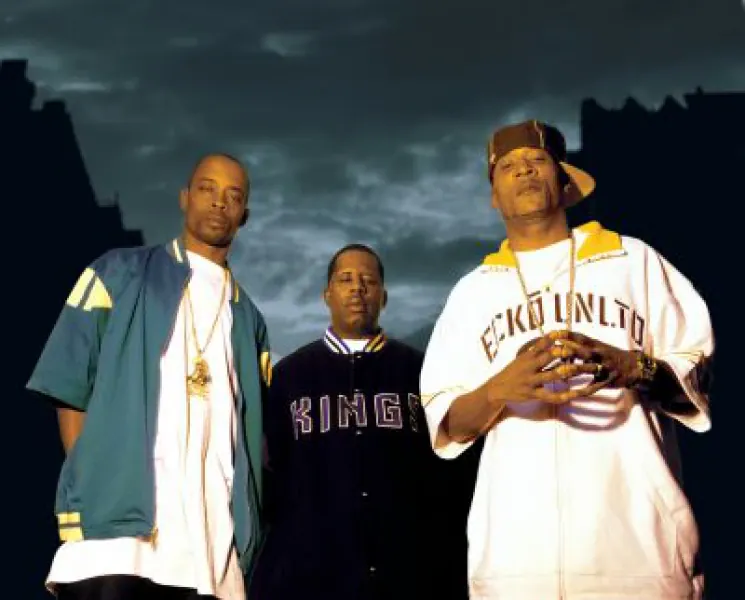
Brand Nubian
Top Brand Nubian albums
Top Brand Nubian lyrics
Another Day In The Beast (Thought From A Criminal) *
Brand NubianBrand Nubian biography
The Five Percent Nation of Islam was a popular inspiration for numerous thinking-man's rap groups during the early '90s, and Brand Nubian was arguably the finest of the more militant crop. Although they were strongly related to the Native Tongues posse in style and sound, they weren't technically members, and were less reserved about spotlighting their politics and religion. Their outspokenness led to controversy, on an even larger scale than similarly minded groups like the X-Clan or Poor Righteous Teachers, in part because Brand Nubian's sheer musicality made them so listenable regardless of what their messages were. The hoopla surrounding their aggressive Afrocentrism sometimes overshadowed the playful and positive sides of their work, as well as the undeniable virtuosity of lead MC Grand Puba's rhymes -- all showcased to best effect on their highly acclaimed debut, One for All.br /br /Brand Nubian was formed in 1989 in the New York suburb of New Rochelle. Grand Puba (born Maxwell Dixon) had previously recorded with a group called Masters of Ceremony, and was joined by Sadat X (born Derek Murphy, originally dubbed Derek X), Lord Jamar (born Lorenzo DeChalus), and DJ Alamo (Murphy's cousin). The group signed with Elektra and released their debut album, All for One, in 1990. Most reviews were glowing, but the stronger rhetoric on the album -- especially the track "Drop the Bomb" -- drew fire from some quarters, including some white Elektra employees reluctant to promote what they saw as reverse racism. Ultimately, the uproar didn't really hurt Brand Nubian's career, but neither did it produce a wider hit with pop or R&B audiences, despite the high regard in which the singles "All for One," "Slow Down," and "Wake Up" are held. A far more serious blow was Grand Puba's departure from the group in late 1991, owing to tensions that had arisen over his handling the lion's share of the rapping. Not only did Brand Nubian lose their clear focal point and chief producer, they also lost DJ Alamo, who elected to continue working with Puba.br /br /Puba released his solo debut, Reel to Reel, in 1992; meanwhile, Lord Jamar and Sadat X regrouped with DJ Sincere (born Terrence Perry) and issued In God We Trust in 1993. It sold fairly well, just missing the Top Ten on the R&B chart, and the single "Punks Jump up to Get Beat Down" was something of a hit, though it also drew fire for its anti-gay slurs. In Puba's absence, the pro-Islam rhetoric grew stronger, with more explicit support for the controversial Minister Louis Farrakhan. By the time of 1994's Everything Is Everything, they'd gotten downright dogmatic, and critics who'd previously defended the group now found them difficult to stomach, both lyrically and musically.br /br /In the wake of the icy reception afforded Everything Is Everything, the remaining members of Brand Nubian drifted apart. Sadat X reunited with Grand Puba for "Play It Cool," a track on the latter's second solo album; Sadat also released his solo debut, Wild Cowboys, in 1996, and subsequently guested on records by a new wave of underground hip-hoppers. Lord Jamar, meanwhile, moved into production, and also landed a recurring role on HBO's prison drama Oz. In 1998, with a new alternative rap movement gaining prominence, the original four members of Brand Nubian reunited for the Arista album Foundation, which received highly positive reviews. Grand Puba and Sadat X both subsequently returned to their solo careers, but they returned with Jamar and Alamo for 2004's Fire in the Hole. ~ Steve Huey, All Music Guide
